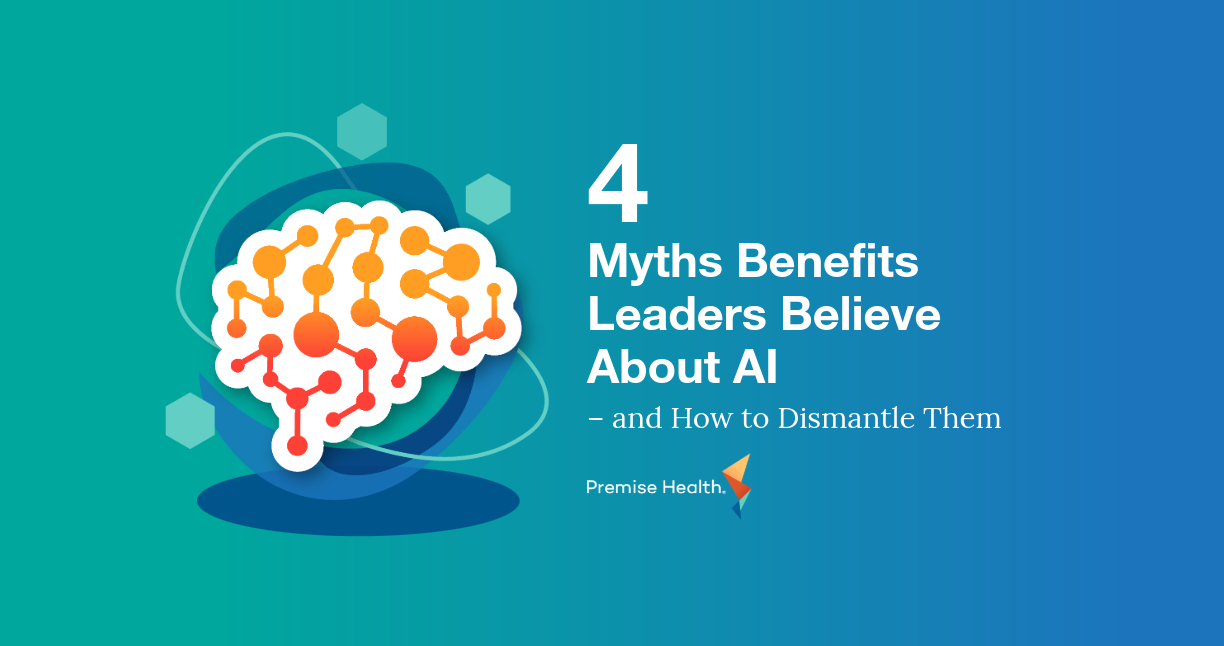Technological Innovation at Premise: A Conversation with Laurel Cipriani, MSc, MSN
In healthcare, technology has the ability to increase operational efficiency, improve access, and impact outcomes. For some people, technological innovation in the industry is a daunting concept. But not for Premise Health’s vice president of clinical applications, Laurel Cipriani, MSc, MSN. She thrives on technology-enabled transformation.
Laurel specializes in systems improvement, information technology, and IT leadership. At Premise, she is an expert at helping her teams navigate the only constant in life: change. Adding to her impact, in 2025 Laurel joined the Executive Fellowship at The Digital Economist. We sat down with Laurel to discuss her experience in healthcare, her passion for technology, and her ability to lead teams in clinical excellence and technological innovation.
What inspired you to initially pursue nursing, and how has your background influenced your interest in healthcare technology and technology-enabled transformation?
My nursing background set the stage for everything that came after. When I was a teenager, I was in and out of the hospital with a serious autoimmune condition. It was during this time I realized what a difference a nurse can make in the experience – and the life – of a patient. That’s what made me realize I wanted to go into nursing.
While working as a floor nurse during graduate school, I helped deploy the first ‘smart’ IV infusion pumps across the hospital. As opposed to their predecessors, which required nurses to manually calculate rate and volume, smart pumps contained software to ensure the correct dosage of medicine was given to each patient, with guardrails to prevent over or under dosing. That was my first time being part of a technological advancement in healthcare, which was exciting. I was also working in nursing when we transferred from paper charts to electronic health records.
One thing I noticed right away was a stark difference in how those two major technological changes were received by my fellow healthcare workers. I get really excited when there’s new technology. I love change. I know a lot of people don’t thrive when things change, so I find it rewarding to get to be a person that helps show people all they can gain from technological advancements.
How has your diverse career prepared you to lead in healthcare technology, and what impact are you making in your current role?
I got so much great experience in being an advocate for change on the frontlines of nursing. In my career I always tried to be an early adopter of technology, so that I could help lead the way and show others how to use it. I always want to do more. I’m always looking for ways I can evolve; ways I can make an even bigger positive impact for people. My goal in life is to help make people’s lives better – and the right technologies can help do that.
Every role I have had positioned me to be a well-rounded leader in healthcare technology. This included working as a bedside nurse, as a nurse researcher, and in population health, where I designed a clinical application, wrote clinical algorithms and taught nurses around the world how to use the system.
In my current role at Premise, I’m responsible for all our specialty clinical applications, our occupational health platform, clinical application governance, and our instructional design and clinical application training teams. The people on our application training team travel to our wellness centers and train all our care team members how to use the technologies they rely on, such as Epic and our occupational health software. That’s really rewarding to see.
You’re in the Executive Fellowship at the Digital Economist, a premier program for forward-thinking leaders, dedicated to advancing transformative change and focused on human-centered, systems-level change. What does your involvement as a Senior Fellow look like?
I’m a full supporter of using AI to revolutionize healthcare, improve quality of life, and reduce suffering – but it has to be implemented in a thoughtful way. AI can actually make certain people sicker, if there aren’t safeguards in place. Unfortunately, right now AI training and education are not widely deployed and are inconsistent in their content. There are few large-scale studies on its risks. I’m trying to change that.
In my role at the Digital Economist, I’m acting as a human-first technologist, partnering with those who are driving the innovations by bringing the call for responsible governance and keeping an eye on ethics. Together with these innovators, we’re seeking to implement AI in a way that keeps humans first, emphasizing AI’s benefits while minimizing risk – that’s where that “human-centered change” piece comes into play.
AI and mental health is an emerging and complex space. Where do you see the greatest opportunities for AI to improve mental health outcomes — and the most urgent safeguards that need to be in place?
One of my biggest concerns with the current state of AI is its echo chamber effect, like what we see on social media. Most AI models reflect what they think you want to hear, encouraging you to keep using it. Just like on social media, if people don’t agree with something, they disengage or unfollow, ensuring they only see content that confirms their views. We can’t allow AI to continue to be designed that way, especially when we think about how it can impact someone who may already be struggling with mental health.
But with safeguards and thoughtful implementation, everyday AI can actually help our mental health, rather than harm it. But I think to be thoughtfully designed, we have to engage psychologists, philosophers, economists, educators, and policy makers – all these thought leaders must be involved in determining what the regulations are and ensuring the data the AI is trained on is inherently safe. Having the right types of advisors participate in the design of large language models will shape how AI affects our mental health.
How do you envision your Digital Economist fellowship experience influencing technological innovation at Premise?
In my fellowship, I am learning a great deal and leaning into the most advanced technologies, including the latest developments in AI and digital health solutions. Beyond gaining technical knowledge, I’m also exploring how these tools can be applied in real-world healthcare settings to improve efficiency, access, and outcomes.
A unique aspect of the Digital Economist fellowship is the opportunity to attend exciting international events. For example, I recently attended the United Nations 80th General Assembly and NYC Climate Week, where thought leaders, scientists, academists, and politicians from around the world convened to discuss the latest breakthroughs. I attended a session on the emerging importance of considering meteorology in healthcare. We discussed ways that AI could translate weather-related factors, such as heat waves, draught, and smoke from wildfires, into an actionable format to providers at the point of care.
This experience is sharpening my ability to evaluate emerging technologies not only for their potential but also for their risks, with a strong focus on ethics, equity, and responsible innovation. I look forward to bringing these insights back to Premise to help us drive forward-thinking solutions that keep our members at the center while ensuring we innovate with integrity.
What excites you most about the intersection of technology and healthcare delivery in the years ahead?
Combined with modern medicine, I think technology is going to help us cure diseases that have been considered incurable until now. We’ll be able to eliminate suffering in ways we’ve never been able to before. We’ll have diagnostics that are so much sharper and, combined with a clinician’s expertise and experience, can detect things so much earlier. I believe AI stands poised to usher healthcare into an era of unprecedented innovation and human-centered precision.
At Premise, it’s not just about what we do today. We’re always looking ahead to implement new and improved technological innovation. Join us on the journey to reimagine what healthcare can be – contact us today.
Next on industry insights.

4 Myths Benefits Leaders Believe About AI – and How to Dismantle Them
Read the Blog
From Insights to Impact: Addressing Behavioral Health Gaps Proactively
Read the Blog